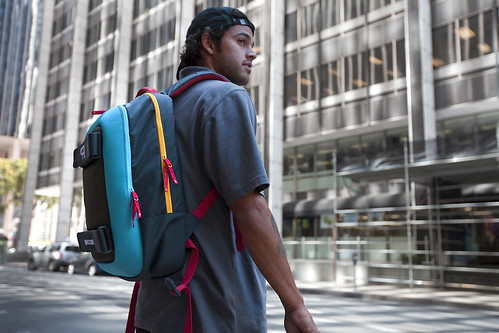Guest post by Samuel Tetley
Thorough preparation can make the difference between an enjoyable voluntary experience and one plagued by discomfort and even illness. There’s a lot to remember before any trip abroad so it’s worth making a list so that nothing is forgotten. Here are 10 of the most important things to include.
Vaccinations
Those volunteering outside the UK may need to be vaccinated against diseases found in different countries. These will help prevent infection from serious diseases such as yellow fever, tick-borne encephalitis and cholera.
A GP can advise on which countries require which vaccinations – some of which must be paid for. Some vaccinations, such as that for yellow fever, are only available from designated centres. Contact the National Travel Health Network and Centre or ask a GP for further information.
Volunteers staying in northern and central Europe, North America or Australia are unlikely to need any vaccinations.
First aid kit
Just the basics will do – anti-histamines, plasters, hydration solution (such as Dioralyte), painkillers, insect repellent, antiseptic wipes, sunblock, a pair of scissors and a pair of tweezers. Take less or more of each depending on the country being visited.
For example, a trip to Paris is unlikely to cause more than one upset stomach, while significant amounts of time spent in India is likely to cause many.
Language
When visiting a foreign country, it always helps to be able to speak some of the language – whether you’re going on a volunteering programme with an organisation such as Projects Abroad or just travelling. Give yourself the best possible chance and start learning as soon as possible. Pack a phrasebook for use while away, but make use of internet sources while at home that provide audio examples of how to pronounce useful words and phrases correctly.
Bag
Don’t take an overly large bag as the temptation will always be to fill it. Packed bags can get heavy quickly – especially in hot countries. Take a rucksack rather than a suitcase as these are easier to carry.
Money
Change money beforehand rather than at the airport or in the country itself. Take a debit card or credit card for use in emergencies and a money belt to keep the main bulk of any cash out of sight.
Entertainment
Long waits in airports and train stations can be made to feel much shorter with a little entertainment. Pack a book to read and a small music-playing device. Books can be exchanged easily enough so take no more than two.
Footwear
Appropriate footwear is essential. Even if the country has a warm climate, don’t think you can get away with just packing flip flops. While not the most flattering of footwear, a good pair of walking boots will be suitable for volunteering on a huge variety of projects. If the placement is within a formal organisation, then smart shoes may be appropriate – check beforehand.
Eyewear
Those that wear glasses should take a spare pair. Contact lens wearers also need to take spares. Everyone should take a good pair of sunglasses that offer full protection against ultraviolet light – specifically lenses that block UVB and UVA rays.
Clothing
Think ‘light and loose’ when packing clothes. Cold nights can be combated by adding layers. Remember that long-sleeved tops and trousers are useful for warding off the advances of mosquitos.
Medication
If you currently take any medication, make sure you have enough to last for the entirety of the trip – and some to spare. If visiting a malarial country, make sure to get suitable anti-malarial medication from your doctor. These usually need to be taken one week before leaving and for one month after returning.
The three main types are Atovaquone plus proguanil (also known as Malarone), Doxycycline (also known as Vibramycin-D), and Mefloquine (also known as Lariam).
Samuel Tetley is a freelance writer and travel enthusiast. He has travelled to – and written about – countries in every continent. Since volunteering he has developed a taste for the varied and challenging work. His next trip will see him teaching English in Tanzania.


Leave a Reply